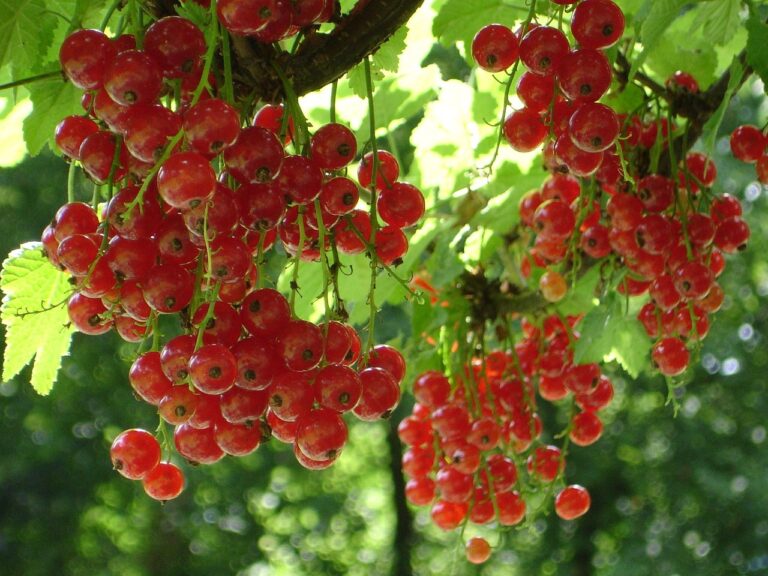The Role of Phytonutrients in Preventing Disease: Betbhai9 com whatsapp number, Playexch in live login, Lotus365 vip login
betbhai9 com whatsapp number, playexch in live login, lotus365 vip login: The Role of Phytonutrients in Preventing Disease
Have you ever heard the phrase, “Let food be thy medicine”? This ancient wisdom holds true today, especially when it comes to phytonutrients. These powerful compounds found in plants play a crucial role in preventing disease and keeping our bodies healthy and strong.
But what exactly are phytonutrients, and how do they work? In this article, we will delve into the fascinating world of phytonutrients and explore their role in promoting health and preventing disease. So sit back, grab a cup of green tea, and let’s dive in!
What are Phytonutrients?
Phytonutrients, also known as phytochemicals, are natural compounds found in plants that have various health benefits. These compounds are responsible for the vibrant colors, flavors, and aromas of fruits and vegetables. There are thousands of different phytonutrients, each with its unique properties and benefits.
Phytonutrients can be classified into several groups, including flavonoids, carotenoids, phenolic acids, and glucosinolates. These compounds have antioxidant, anti-inflammatory, anti-cancer, and immune-boosting properties, making them essential for our overall health.
How Do Phytonutrients Prevent Disease?
Phytonutrients play a vital role in preventing disease by protecting our cells from damage and inflammation. These compounds help to neutralize harmful free radicals in the body, which can lead to oxidative stress and chronic diseases such as cancer, heart disease, and diabetes.
Additionally, phytonutrients have anti-inflammatory properties that can help reduce inflammation in the body. Chronic inflammation is a significant risk factor for many diseases, including arthritis, Alzheimer’s disease, and autoimmune disorders. By including phytonutrient-rich foods in your diet, you can help to keep inflammation in check and reduce your risk of developing these conditions.
Phytonutrients also support the immune system and help to fight off infections and diseases. Many phytonutrients have antimicrobial and antiviral properties that can help defend against pathogens and keep your immune system strong and resilient.
What Foods are Rich in Phytonutrients?
A colorful diet is key to ensuring you get a wide variety of phytonutrients. Here are some examples of phytonutrient-rich foods to include in your daily meals:
– Berries: Blueberries, strawberries, raspberries, and blackberries are packed with antioxidants and flavonoids that can help protect against cancer and heart disease.
– Cruciferous vegetables: Broccoli, kale, cauliflower, and Brussels sprouts are rich in glucosinolates, which have anti-cancer properties and support detoxification pathways in the body.
– Citrus fruits: Oranges, lemons, grapefruits, and limes are high in vitamin C and flavonoids that can boost the immune system and protect against infections.
– Tomatoes: Tomatoes are rich in lycopene, a carotenoid that has been linked to a reduced risk of prostate cancer and heart disease.
– Green tea: Green tea is loaded with catechins, a type of flavonoid that has powerful antioxidant and anti-inflammatory properties.
Including a variety of these phytonutrient-rich foods in your diet can help to boost your overall health and reduce your risk of developing chronic diseases.
The FAQs
Q: What are the best ways to incorporate phytonutrients into my diet?
A: The best way to ensure you are getting enough phytonutrients is to eat a wide variety of fruits, vegetables, whole grains, nuts, seeds, and legumes. Aim to fill half your plate with colorful fruits and vegetables at each meal and snack on nuts, seeds, and berries throughout the day.
Q: Can I take phytonutrient supplements instead of eating phytonutrient-rich foods?
A: While supplements can be useful in certain situations, they are not a substitute for a healthy diet rich in fruits and vegetables. Whole foods contain a combination of nutrients and phytonutrients that work together synergistically to promote health. It’s always best to get your nutrients from food whenever possible.
Q: Are phytonutrients safe for everyone to consume?
A: Phytonutrients are generally safe for most people to consume. However, some people may be sensitive to certain phytonutrients or have allergies to specific plants. If you have any concerns about adding phytonutrient-rich foods to your diet, consult with a healthcare provider or registered dietitian.
In conclusion, phytonutrients are powerful compounds found in plants that play a vital role in preventing disease and promoting health. By including a wide variety of phytonutrient-rich foods in your diet, you can help protect your cells from damage, reduce inflammation, and support your immune system. So go ahead and load up on those colorful fruits and veggies – your body will thank you for it!







